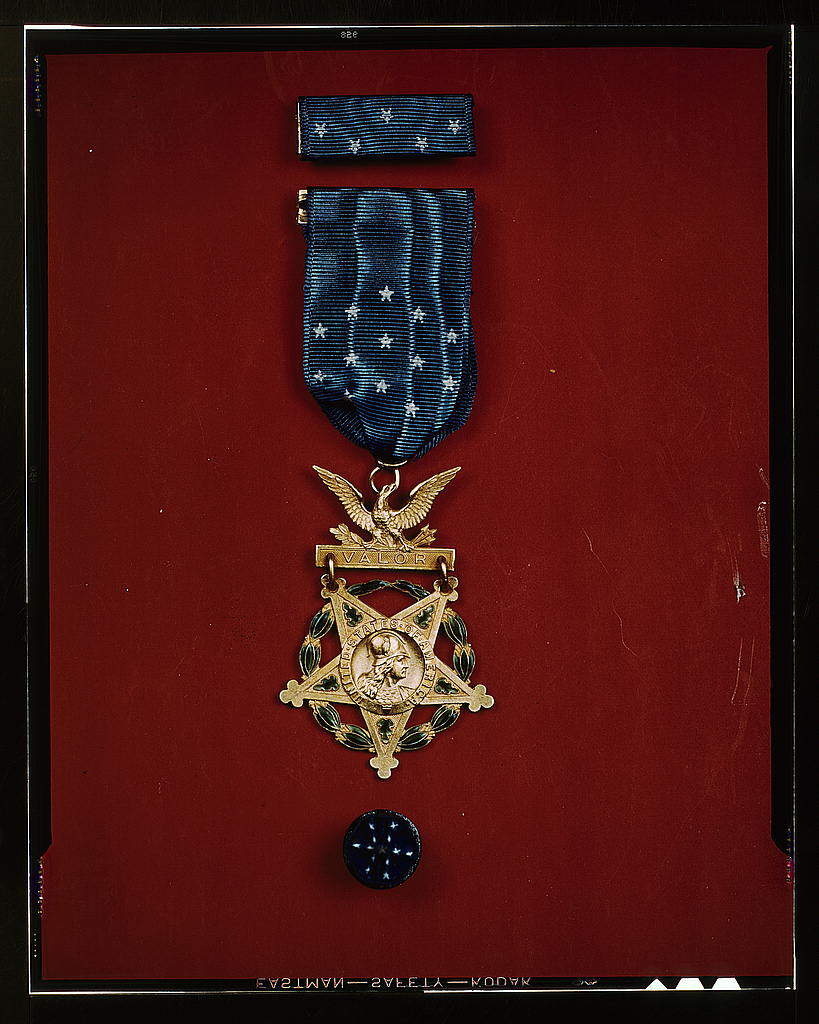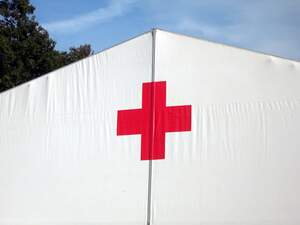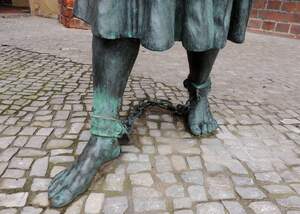

National Medal of Honor Day
Observed
annually on March 25th (since 1991)
Dates
Founded by
President George H. W. Bush on November 15th, 1990
Hashtags
Sources
https://en.wikipedia.org/wiki/Medal_of_Honor
https://homeofheroes.com/national-medal-of-honor-day/
https://militarybenefits.info/medal-of-honor-day/
https://www.congress.gov/bill/101st-congress/house-joint-resolution/652/text
https://www.presidency.ucsb.edu/documents/proclamation-6263-national-medal-honor-day-1991
National Medal of Honor Day is dedicated to the recipients of the Medal of Honor. The Medal of Honor is the highest military decoration in the United States and the highest distinction that can be awarded by the President. Presidents usually present it to the recipient at a formal ceremony, and if it is being given posthumously, it is presented to the primary next of kin. It is also known as the Congressional Medal of Honor because it is presented "in the name of the Congress."
Rep. Rod Chandler (R-WA) introduced a resolution for National Medal of Honor Day in September 1990. It outlined reasons for the day, saying "it is appropriate to honor the heroic recipients of the Medal of Honor" and "public awareness of the importance of the Medal of Honor has declined in recent years." It said that the day "will focus the efforts of national, State, and local organizations striving to foster public appreciation and recognition of Medal of Honor recipients." It designated the day to take place on March 25, and it authorized and requested the President to issue a proclamation in observance of the day. On November 15, 1990, it became Public Law 101-564, when it was signed by President George H.W. Bush. The President issued Proclamation 6263 the following March. In it, he said, "during times of armed conflict, these individuals have distinguished themselves through brave and selfless actions that were far above and beyond the call of duty."
In the eighteenth and nineteenth centuries, various military medals preceded the Medal of Honor. Then, in 1861, Senator W. Grimes of Iowa, Chairman of the Committee on Naval Affairs, submitted a bill that included a provision for "medals of honor." When President Lincoln signed it that year, it created the Medal of Honor for the Navy. The first Navy sailors received the award on April 3, 1863. In February 1862, Senator Henry Wilson, who sat on the Senate Committee of Military Affairs, introduced a resolution for a Medal of Honor for the Army. It was signed by President Lincoln on July 12, 1862. Originally, the medals were just to be given to those who served during the Civil War, but on March 3, 1863, the medals became permanent awards.
March 25 was chosen as the date of National Medal of Honor Day because it was on that date in 1863 when the first Medals of Honor were presented. The first to receive the award was Army Private Jacob Parrot. He, along with five other of the Andrews Raiders—who had gone beyond enemy lines and hijacked The General, a Confederate locomotive—were presented the medals by Secretary of War Edwin Stanton. Afterward, they met with President Lincoln in the White House.
Members of the Marine Corps and Coast Guard were later authorized to receive the Medal of Honor. Until 1965, the Air Force received the Army's version of the award, but they began receiving their own at that time. Members of the Space Force are now also eligible for the award. The medal is given to those members of the Armed Forces "who have distinguished themselves conspicuously by gallantry and intrepidity at the risk of their lives above and beyond the call of duty." Their valor must meet one of three criteria for the member to be eligible. They must perform meritorious actions above and beyond the call of duty "while engaged in an action against an enemy of the United States," "while engaged in military operations involving conflict with an opposing foreign force," or "while serving with friendly forces engaged in armed conflict against an opposing armed force in which the United States is not a belligerent party."
The nomination and approval process for the Medal of Honor usually goes through a service member's chain of command. A member of Congress may also nominate an individual, which is usually done at the request of a constituent. Currently, over half of the medals are presented posthumously. Benefits come with the award. Some benefits include having one's name entered into the Medal of Honor Roll, entitlement to a monthly pension above regular military pensions and benefits, an invitation to all future presidential inaugurations and inaugural balls, and eligibility to be buried at Arlington National Cemetery if not already eligible. The appearance of the medals has changed over time, and since 1944 they have been attached to a blue silk neck ribbon adorned with stars. As of 2021, over 3,500 Medals of Honor have been awarded. On National Medal of Honor Day, we pay tribute to those who have been given this medal.
How to Observe National Medal of Honor Day
Some activities you could do to observe the day include:
- Fly the American flag.
- Learn about recipients of the Medal of Honor.
- Visit the National Museum of the United States Army and stop at the "Medal of Honor Experience" exhibit.
- Visit the National Veterans Memorial and Museum, the Medal of Honor Memorial, or Chattanooga National Cemetery—where some of the Andrews Raiders are buried and the Andrews Raiders Memorial is located.
- Let the media know about the day. Perhaps there are living Medal of Honor recipients in your city or state that they could highlight stories about, or maybe they can focus on recipients who are deceased and buried nearby.
- Mail a letter of thanks to a living Medal of Honor recipient, or visit the grave of a deceased recipient.
- Attend a "retreat" ceremony, where the fallen are honored with "Taps" and the lowering of the flag.
- Check for events to attend in your community, or attend a ceremony or observance at a national cemetery or military base.
- Pay your respects at Arlington National Cemetery.
- Become involved with or donate to organizations such as the Congressional Medal of Honor Society or the Medal of Honor Historical Society of the United States.





















